How to Find Wholesale Suppliers for Online Stores Outside of Alibaba

If you've ever been trying to source products from China, you've almost certainly used Alibaba. Truth be told, Alibaba is the Amazon of Chinese suppliers. But much like you use Amazon for almost everything but not everything, the same is true for Alibaba. It works most of the time, but not all of the time.
In this post, we'll reveal some of the places to look for wholesale suppliers and products to import from China outside of Alibaba.
Topics Covered
The Pros and Cons of Alibaba
I don't intend for this post to be a dogging of Alibaba as it is going to be a critical tool for almost any importer. However, there are advantages, and disadvantages, to using Alibaba.
PROS
- Selection
- Relatively safe
- Organized and relatively up-to-date supplier information
CONS
- Everyone uses Alibaba (including your competitors)
- Abundance of low-value-add trading companies
- Not necessarily great for smaller niches
The biggest advantage of Alibaba is the sheer selection of suppliers. If Chinese suppliers are actively looking for foreign clients then there's a very good chance they're on Alibaba. Chinese suppliers themselves even use Alibaba to find other suppliers. Alibaba is also probably the most organized of all platforms, although that isn't necessarily saying a lot. Their information is also the most up-to-date of all platforms, which isn't, again, necessarily saying a lot.
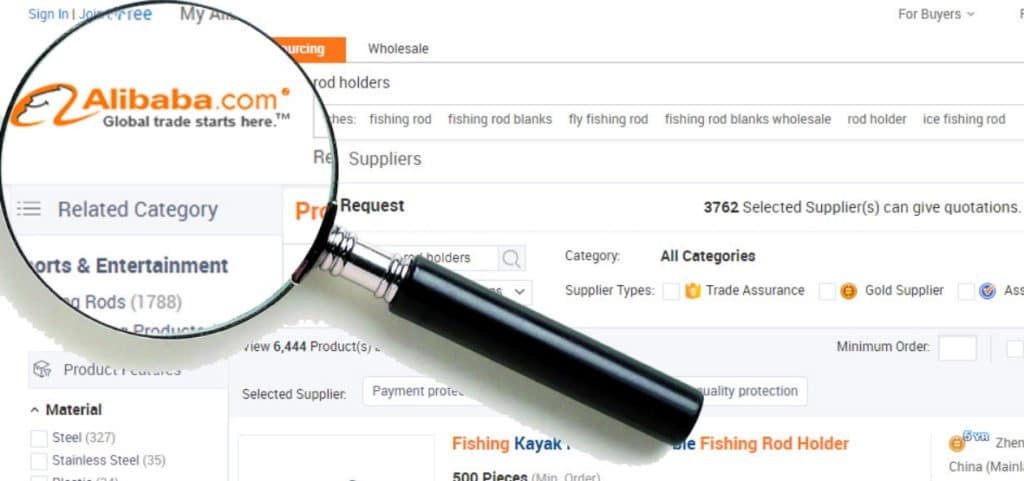
The big disadvantage of Alibaba is that everyone uses Alibaba, including your competitors. If you find a home run product on Alibaba and get some sales traction on Amazon or elsewhere, as soon as anyone gets a sniff of this they'll seek out your exact supplier for your exact product. The goldmine of importing from China is finding a supplier with quality products that don't advertise on Alibaba. I call such suppliers Golden Suppliers (a deliberate play on Alibaba's Gold Suppliers).
Related Reading: 2021 Buying on Alibaba Guide
While Alibaba does have depth of all types of suppliers, there's an abundance of trading companies that don't have any significant value-add. Trading companies are not bad; trading companies that don't offer any additional value are bad.
“The goldmine of importing from China is finding a supplier with quality products who doesn't advertise on Alibaba.”
Finally, there's one sad irony when looking for Chinese suppliers–the best ones normally aren't actively recruiting new clients and thus aren't on Alibaba. They're so overwhelmed with their current demand they don't have time to mess with smaller buyers (which Alibaba attracts a lot of).
1. Trade Shows
Trade shows are by far my favorite way to find new suppliers for a few reasons:
- You can find suppliers not advertising on Alibaba
- You can find higher-quality suppliers who don't necessarily want lower-quality Alibaba buyers
- You can build immediate rapport and relationship
- You can brainstorm for new products
The biggest advantage to trade shows is that you can find Golden Suppliers–suppliers not advertising on Alibaba. The easiest way to find these suppliers is by visiting trade shows. When you visit trade shows you also get the added benefit that you can immediately build a relationship, rapport, and trust with suppliers. Many suppliers who you meet at trade shows have either small minimum order quantities or no minimum order quantities because they believe that buyers here are more serious and committed.
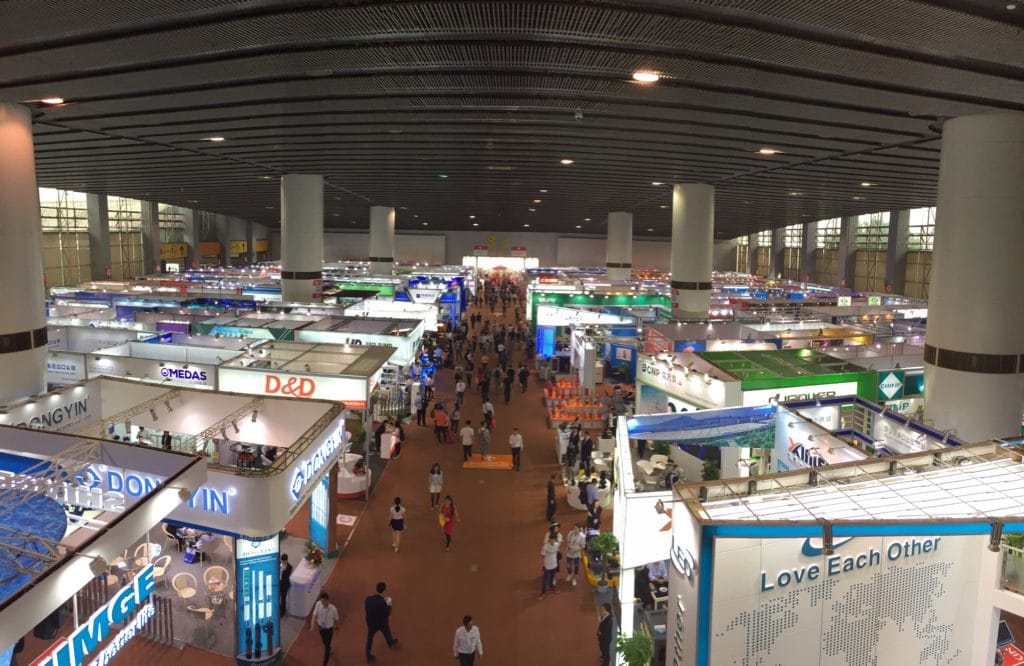
Most importers know of the Canton Fair that happens twice a year. The Canton Fair is an excellent way to get your feet wet into the world of importing but it has one major drawback: it's a one size fits all show for every niche. If you're in a narrow niche, which most importers should be for ultimate success, the Canton Fair will often have a limited selection for your niche. This is why I highly recommend trying to find an industry specific trade show using a website like ChinaExhibition.com.
The big downside to visiting trade shows is that you actually have to visit China. China is an increasingly easier place to visit for Westerners and all serious importers should try to make a regular visit to China (ideally make it an annual visit). Many trade shows in China will actually pay for your hotel when you visit and some will even give you cold hard cash (part of pumping their attendee numbers which helps them sell booths).
2. Using Import Records
You may know that you can see exactly what nearly any company in the United States is importing and from whom. If you don't already know this, then this will probably blow your mind. If you find a product on Amazon or other sales channels and wonder where that company buys their products from, you can easily find out. You can see our complete guide to using Import Records but here is a brief synopsis.
In America, thanks to the Freedom of Information Act, imports from companies are public information. This information is limited to what's available on the bills of lading such as product descriptions, importer name, supplier name, etc. but this is an abundance of information to seriously snoop on your competitors. There are a number of free services, with Port Examiner being the most popular, but they have incomplete information and clunky interfaces. To really harness the power of import records you will need to use a paid service like Panjiva or Import Genius.
Using Import Records To Find Suppliers
Scouring import records is a useful tool for doing competitor and supplier research and for finding suppliers yourself. These records are public information in the United States and there are multiple tools that allow you to simply search for a company name and see which suppliers they are working with.
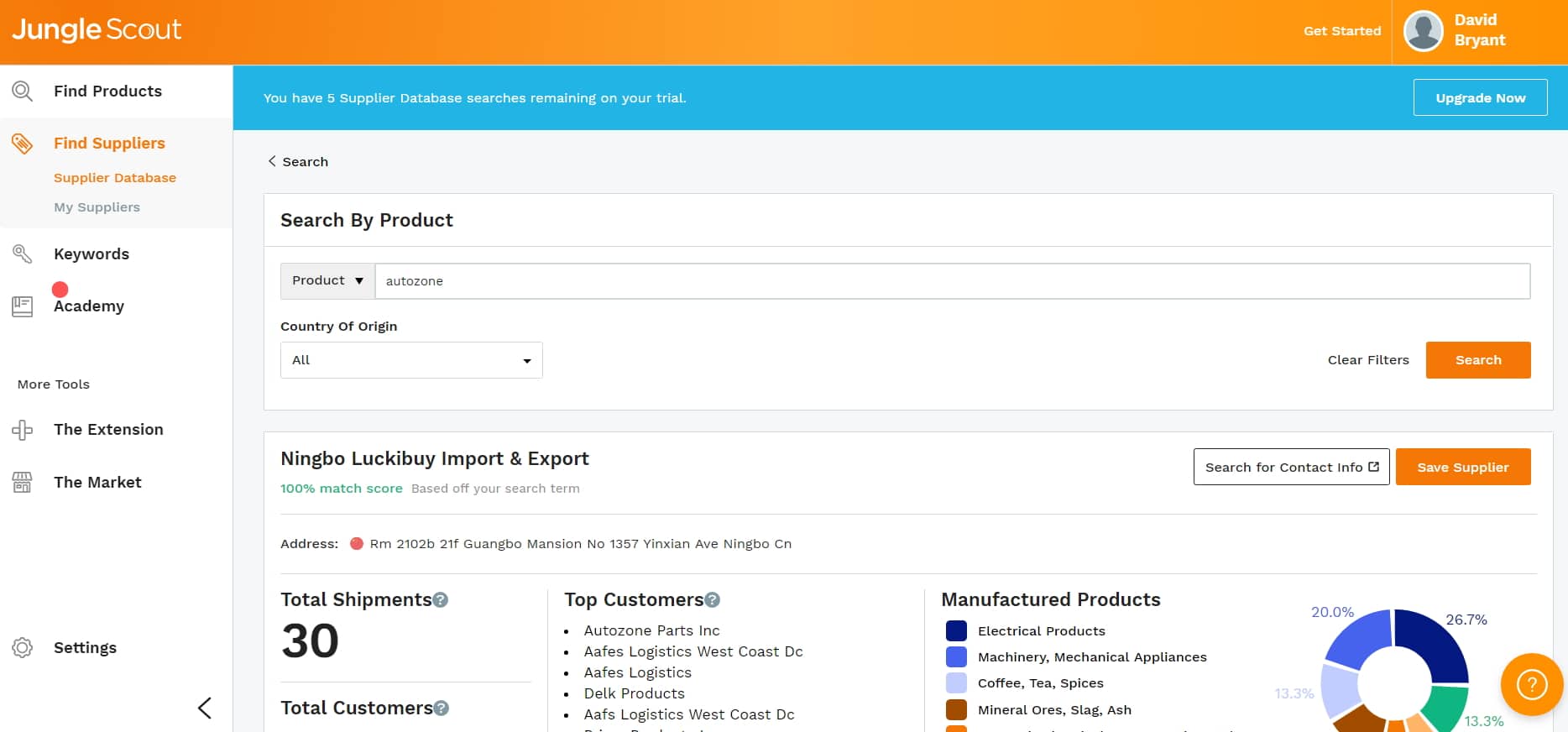
My go-to tool for this is Jungle Scout's Supplier Database, which costs less than $50 a month (other more expensive options include Import Genius and Panjiva). These tools neatly summarize all of the information included on a particular company's Bill of Lading information such as product type, quantity, and supplier name/address.
The best part about using Import Records to find suppliers is that you can often find Golden suppliers this way. The downside to using Import Records is that it is mostly restricted to the United States and sophisticated importers can hide their import records in a variety of ways.
3. Global Sources
Global Sources is one of the first Chinese supplier directories and has been around since 1970 when China was much more closed. Think of Global Sources as the Western-friendly, sweet and sour pork version of Alibaba (Alibaba, through and through, is a very Chinese-centric company). Over the last couple of years, we've built close relationships with several people at Global Sources including Meghla Bhardwaj and Cameron Walker who have been frequent guests on the podcast (their podcasts offer incredible insight into sourcing from China). You don't get that closeness and intimacy behind Jack Ma's Alibaba.
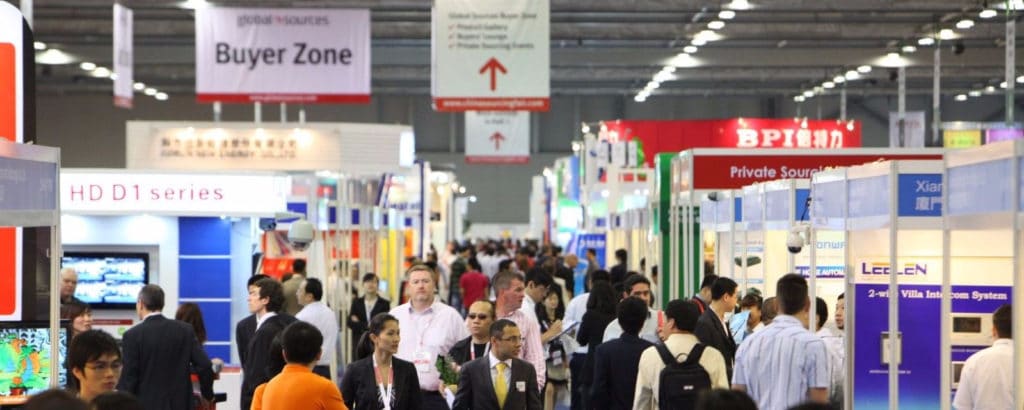
Global Sources is much more focused than Alibaba in a few different categories, most important electronics. The selection on Global Sources tends to be much more curated. There is such a wide spectrum of quality when it comes to electronics and Global Sources tends to be much more consistent and predictable in terms of the quality of electronics provided by suppliers.
If you're sourcing nichier items like boating products or tactical products you can probably start your online searches on Alibaba. If you're looking at electronics or electronics accessories though, Global Sources should definitely be part of your search.
Where Global Sources really shines though is their integration of trade shows, conferences, and supplier directory. The Global Sources Electronics show, held twice a year around Canton Fair, is the CES of China and the Global Sources Summit (held concurrently with their trade shows) is now the ecommerce conference in Asia. Whenever I'm visiting the Canton Fair, I now make a visit to the Global Sources trade shows/summit at the start of my trip.
4. Yiwu Wholesale Market
The Yiwu Wholesale market is a giant wholesale market with thousands of shops located in Yiwu, a city a couple of hours south of Shanghai by bullet train. I did a complete guide to the Yiwu Market that you can access here.
Yiwu is a fascinating place–it's literally like a 24/7 Canton Fair. It is catered for foreign buyers and has nearly every single commodity-type product imaginable from Christmas supplies to office stationery.
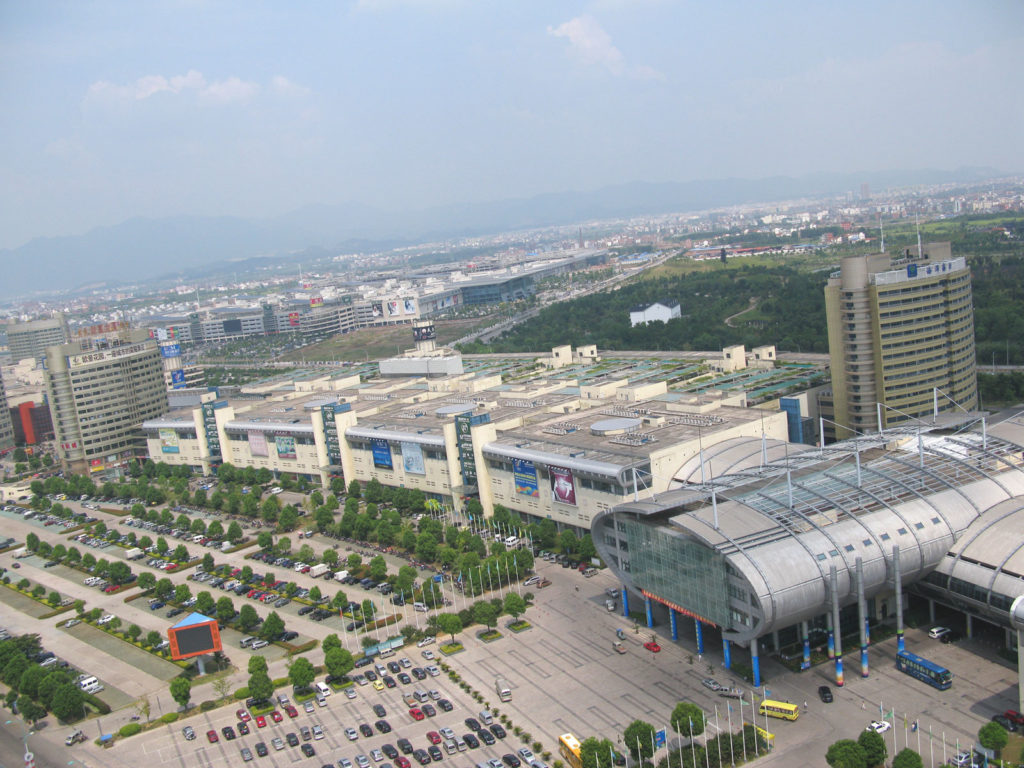
The biggest problem with Yiwu is that it consists largely of very cheap, low-quality items and it does not have many products for smaller niches. As limited as the Canton Fair is for smaller niches, Yiwu is even more limited. I jokingly sometimes refer to Yiwu as the largest Dollar Store in the world as that epitomizes the range and quality of products you will find there.
If you are in the Shanghai area I definitely recommend visiting Yiwu for one night to check it out but it does probably not warrant being the basis of a sourcing trip.
5. DHgate
For the most part, DHgate is a logical next step if you can’t find what you’re looking for on Alibaba. It works a lot like Alibaba in terms of interface.
Though it claims to cater to both businesses and consumers, emphasis is on the former, particularly to medium retailers.
This platform offers a relatively wide variety of products, and even some highly niche ones, i.e. electronics that you won’t find on other platforms. It's also big on health and beauty products, sports, and fashion.
Some sellers sourcing from DHgate point out the relatively lower minimum order quantities, but the tradeoff is that the pricing here can sometimes not compete with what you will find on Alibaba.
6. AliExpress
As you may have guessed from its name, AliExpress is owned by the Alibaba Group.
The best way to tell them apart is that while Alibaba is a B2B platform tailored to wholesale and bulk orders, AliExpress is more of a B2C site that lets individual consumers buy from Chinese wholesale suppliers directly. That being said, that hasn't stopped a lot of sellers from sourcing their products from this marketplace. Matter of fact, you can take advantage of AliExpress if you’re a startup or are currently in the product research phase, as there are no (or at least very low) minimum order quantities.
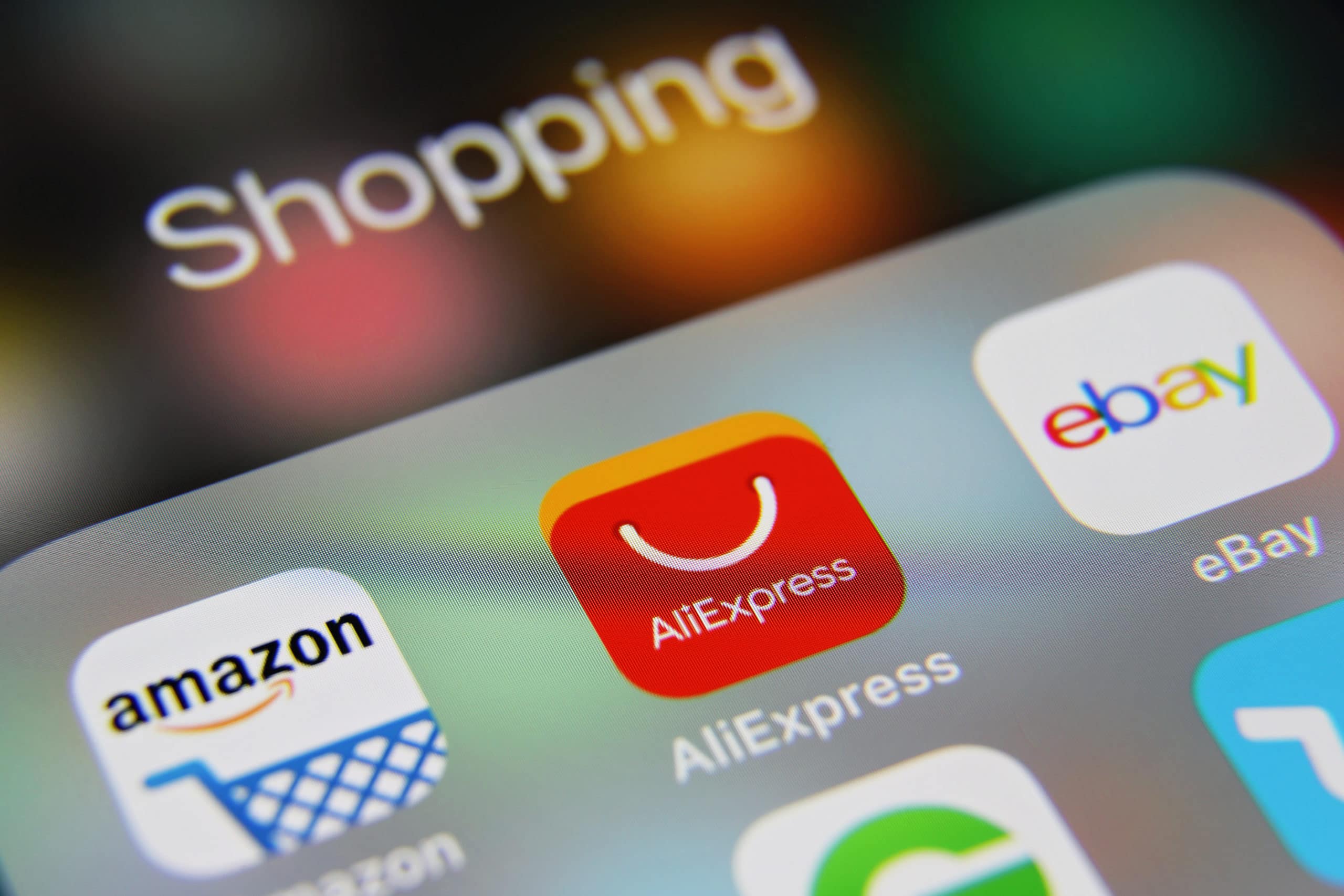
Another way of looking at it is that AliExpress lets you check out products from suppliers listed on Alibaba in lower quantities (albeit at retail prices), making it ideal if you want to sample a variety of products without going all in on a large inventory right out of the gate.
7. 1688
Another platform owned by Alibaba, 1688 is a directory of Chinese suppliers, wholesalers, and trading companies. What sets it apart is that the suppliers here cater more to the local Chinese market. The entire site is in Chinese, but with the help of Google Translate, you can often find some suppliers and products you couldn't find on Alibaba.
This means that you’ll find low-priced, but also generally low-quality products. This website is mostly focused on beauty products, fashion, and on smaller parts and accessories (i.e. components of larger parts).
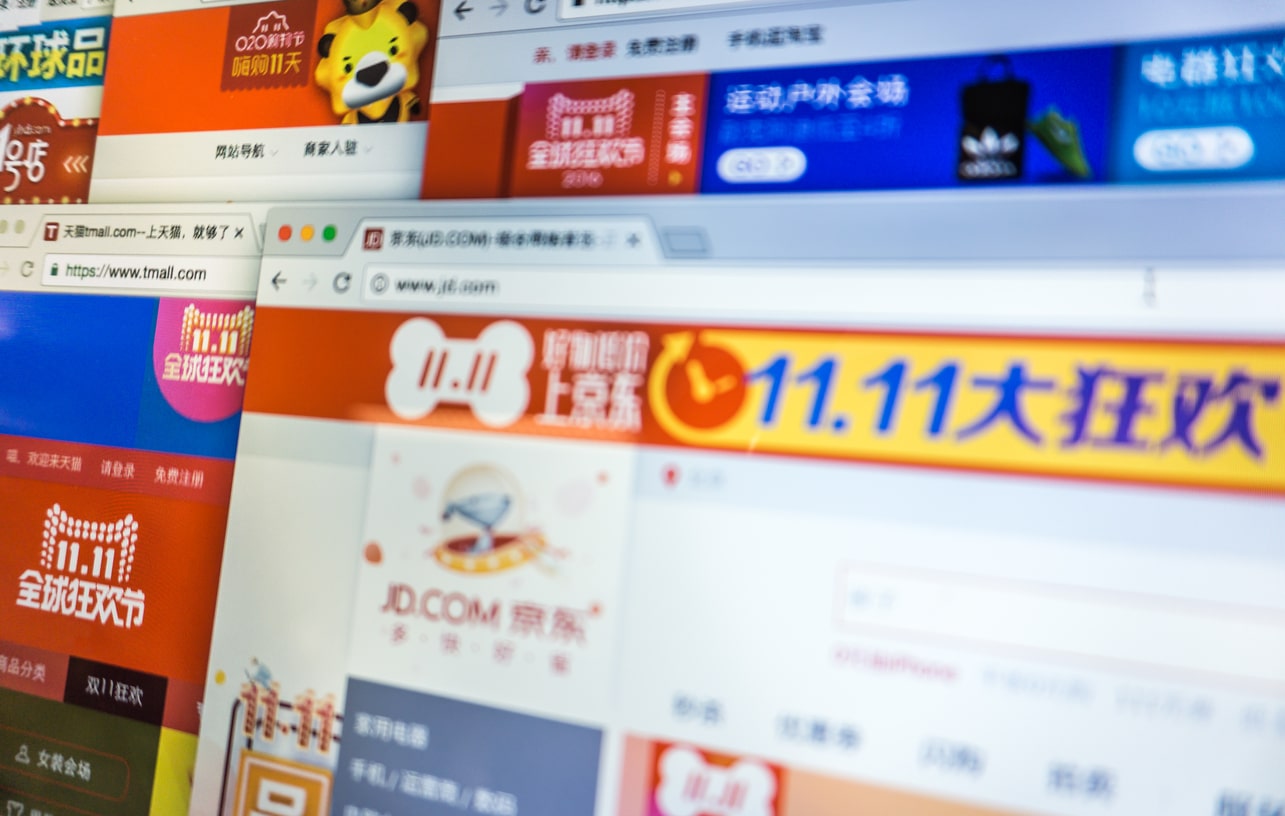
A big thing to keep in mind is that many of the suppliers here aren’t as sophisticated as the ones you’ll find on Alibaba. This makes it tough if you’re looking to private label. They are also not attuned to exporting and to the quality standards of Western markets like the US and the UK.
8. JD
JD (Jingdong Mall) is the Alibaba competitor insofar as the Chinese scene goes, but it’s actually more like Amazon in that it’s tailored to consumers first.
That said, they have a wholesale zone for business where you can buy in bulk and at better prices.
It is one of the largest Chinese companies by revenue and is one of the most trusted places to buy Chinese products online. Quality, rather than quantity, is the name of the game on this platform.
9. Referrals
One little-known trick to finding suppliers is direct referrals from your professional connections. Sometimes, the easiest option is often to ask your current suppliers. Suppliers in China are much better connected with other factories than we ever can be and they can often be invaluable in sourcing hard to find products. They'll take a commission on the products, but normally it's negligible.
This can be a way to find Golden Suppliers that you can consider to have already been vetted by people you know and trust. In any case, like we said when we talked about the best countries to source private label products from, always do your own due diligence.
10. Sourcing Agencies
Another option if you’re having trouble finding the right supplier (assuming you already have a product in mind) is to work with sourcing agencies. There are countless sourcing agents in America, Canada, and other countries that can help you source products from China.
My very first supplier was a Chinese businessman in Vancouver for some boat anchors. There are larger sourcing agents (who normally specialize in particular goods) and smaller ones like the one I dealt with. The big advantage with them is that you reduce all the risk and uncertainty of what happens to your products in between China and the destination as you often pay cash on delivery.
Another thing sourcing agencies can help you do is communicate more seamlessly with your supplier and ensure product quality.
Conclusion
Alibaba is still the place to source products but it is not the only place and often not the best place. The things that make Alibaba so successful, specifically it's ease of use and convenience, are also it's the biggest downside as it's nearly impossible to keep competitors from poaching your products very quickly.
Do you have any other places you source products from? Do you have any questions about the places mentioned here? If so, post your questions and comments below.




Thanks for this great article, Dave. It was helpful as I’m looking for other ways to find suppliers than Alibaba. I also really enjoyed your latest webinar on product differentiation. Is it OK if I ask you a question about that webinar here? You brought up the point that textiles is a great type of product where you can easily make product tweaks. I’ve been warned in the past that there are various labeling requirements for selling textiles (country of origin, materials, flammability, etc). If I sell a product that may be considered a textile, how can I make sure I put the right tags/labeling on the product to meet all requirements? How do you handle this and can you recommend any resources to learn more?
I deal with a lot of fabrics but not a lot of textiles so keep this in mind. There are significant labeling requirements normally with materials and country of origin, like you mentioned, but any supplier that has exported to your country should have standard labeling they’ll apply. If you get a dumbfounded response from a supplier just move on to the next. If you have a customs broker you work with, they’ll normally be happy to review a sample label for little or no charge. I’m also not sure any textile labeling is ever checked by customs at the time of import (aside from possibly children’s clothing) which takes away some of the stress.
Outside china .. can u refer some of the big manufacturers like alibaba in any other countries? Could you please refer to me.. like, India, Indonesia, Vietnam, USA, canada or any other countries.